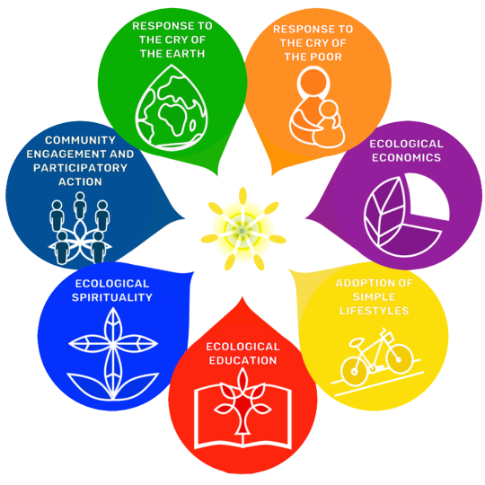Laudato Si' Action Platform Goals (LSAP)

In 2015, Pope Francis published his second encyclical, titled Laudato Si' ("Praise Be to You"). The encyclical has the subtitle "on care for our common home". In it, the pope critiques consumerism and irresponsible development; laments environmental degradation and global warming; and calls on all people of the world to take "swift and unified global action.” This call lead to the Laudato Si' Action Platform (LSAP), a papal initiative launched in 2021, to envision sustainability in the holistic spirit of integral ecology and to redefine and rebuild our relationship with each other and our common home. The LSAP supports institutions, communities, and families to discern and implement a response to Laudato Si' by guiding actions.
Read more here about each of the 7 LSAP goals
United Nations Sustainable Development Goals (SDG)
![]()
In 2015, the United Nations published Transforming our world: the 2030 Agenda for Sustainable Development, a "plan of action for people, planet and prosperity." The publication outlines 17 Sustainable Development Goals (SDGs), as well as 169 targets and associated indicators, forming a 15-year agenda intended to balance "the three dimensions of sustainable development: the economic, social and environmental." It seeks to strengthen universal peace in larger freedom and recognizes that eradicating poverty in all its forms and dimensions is the greatest global challenge and an indispensable requirement for sustainable development.
